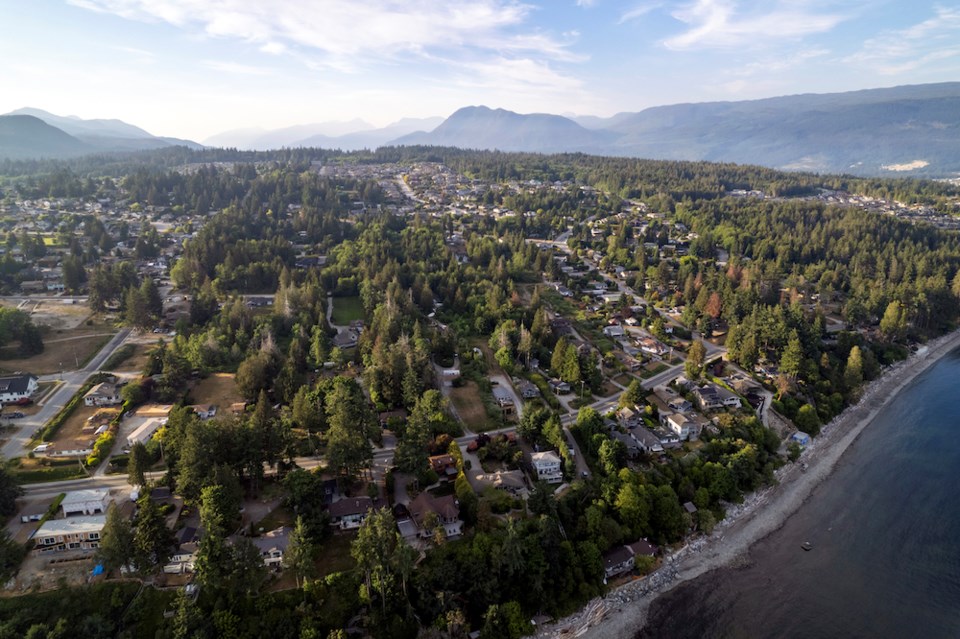The Sechelt Community Associations Forum (SCAF), an umbrella community group that meets monthly with directors from Sechelt’s eight community associations, has unveiled the findings of their recent online survey focused on the topic of water. The survey, which received a total of 278 responses from Sechelt community association members, was developed by SCAF after a request for ideas and input on water was made through the District of Sechelt Council.
“Our aim was to gather diverse opinions,” states Katie Clogg, chair of SCAF, “We want to be a stronger, collective voice on behalf of our neighbourhoods so that the district can listen and respond to the questions, concerns and ideas of our association members on a variety of topics.”
The survey focused on key aspects of water, such as individual water-saving efforts, how neighbours get their water news, feedback on water meters, and what neighbours see as priorities to address ongoing water shortages in Sechelt.
A key theme that emerged from the survey was support for large-scale water storage solutions and infrastructure investments; it was ranked as the number one response. Respondents also want the government to explore investments in grey water recycling.
A call for regulations or a moratorium on new developments in Sechelt until there are long-term planning strategies in place for water was a popular response. Respondents want to see the district regulate water conservation and efficiency in new developments, including water catchment or cisterns, greywater reuse, drought tolerant plantings, and incorporation of other water-efficient designs and technologies.
“Communication was also cited as an issue that residents would like to see improved,” shares Clogg, “There is a desire for more transparency, increased public awareness of our water status, as well as more public education and input on the future of water on the Sunshine Coast.”
When surveyed what their main source of information was on water projects and updates on the Sunshine Coast, 82.6 per cent of respondents cited the Coast Reporter, while 30 to 35 per cent use local government websites, 46 per cent from community associations, 42 per cent rely on word-of-mouth, and 17 per cent access updates on Facebook. Only 6.7 per cent of respondents presently use the SCRD’s “Let’s Talk Water” online public engagement platform.
The forthcoming installation of water meters in Sechelt also had split responses, but the majority of people expressed a positive view, saying it was a useful tool to address water shortages, but not the only solution. However, concerns were raised about additional costs on top of existing water bills and property taxes. Residents also emphasized the need for fairness and equity, considering tiered pricing, for families or low-income seniors. Monitoring and enforcement, leak detection, and financial support for leak repairs were also areas of interest.
The survey also showed strong support for more financial incentives, such as tax breaks or subsidies, aimed at encouraging residents to actively conserve water outdoors, for example through the use of drip irrigation or water catchment storage tanks and filtration systems.
“We would be remiss if we didn’t mention that the survey also strongly indicated a range of negative emotions, from worry, anger, anxiety and fear, to sadness and helplessness. Continued water shortages have been hard on our community and there’s been a lot of sacrifice by all Sechelt residents.” The SCAF survey suggests that people have lost confidence in the government structures that govern our water supply.
SCAF intends to present the full survey results as a delegation to Sechelt Council and staff on Sept. 6 and to forward survey findings and recommendations to directors of the SCRD.
– Submitted by Katie Clogg, chair, Catherine Hanson, vice chair, Sechelt Community Associations Forum



